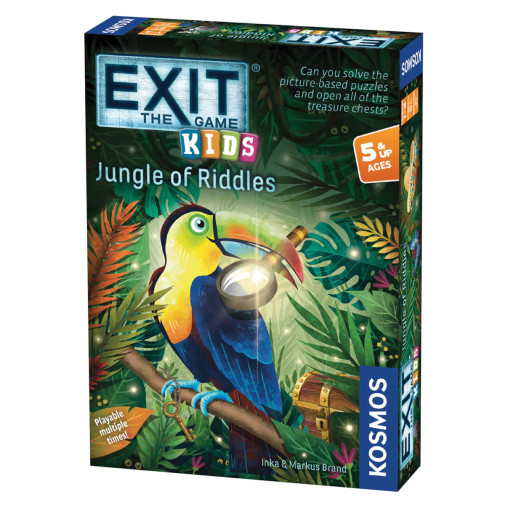Escape rooms are a real treat. Being trapped in a mysterious room with
your friends and family...knowing that anything around you could be a clue to a
convoluted riddle...the pressure of the clock counting down...and driving back
home with hours of discussion of what you could have done differently.
Unfortunately, most of us don't get to do escape rooms very often. But if you
enjoy the type of logic involved in escape rooms, you'll probably like these
games which are also a fraction of the cost! Having done a real escape room, I
can tell you that the puzzles in these games are just as complicated as the
real thing, and as a bonus, don't require an app or batteries. All you need are
a few pencils, paper pads, a timer, and a pair of scissors. In the game box,
you'll find riddle cards, answer cards, help cards, a booklet, a decoder disk,
and some "strange objects" which you'll use in puzzles later in the
game. Like a typical escape room, your first move is to take a look around the
"room" to find clues & riddle cards. The puzzles involved are an
interesting mix of logic, leaps of logic, and activities. Word scrambles,
dot-to-dots, magic eye pictures, word riddles, scraps of letters and numbers,
chemical tables, etc. are just some of the various "pieces" of the
head-scratching brain teasers you may encounter. When you think you have
figured a riddle out, you can check your answer by entering it into the decoder
disk; it will tell you if you were right, wrong, or maybe correct and move you
along in the game. If you get stuck, you can always consult the help cards for
clues. When you and your friends have solved the last puzzle, you're done!
Check your score by seeing how long it took you and how many help cards you had
to use. It's worth noting that each title is for one play only, since you will
mark up, tear, fold, and cut the materials. Each scenario has a difficulty
score from 1-5, easiest to hardest. Game times average 1-2 hours.


